from 0 review
Duration
08 Nights
Tour Type
Daily Tour
Group Size
Unlimited
Languages
___
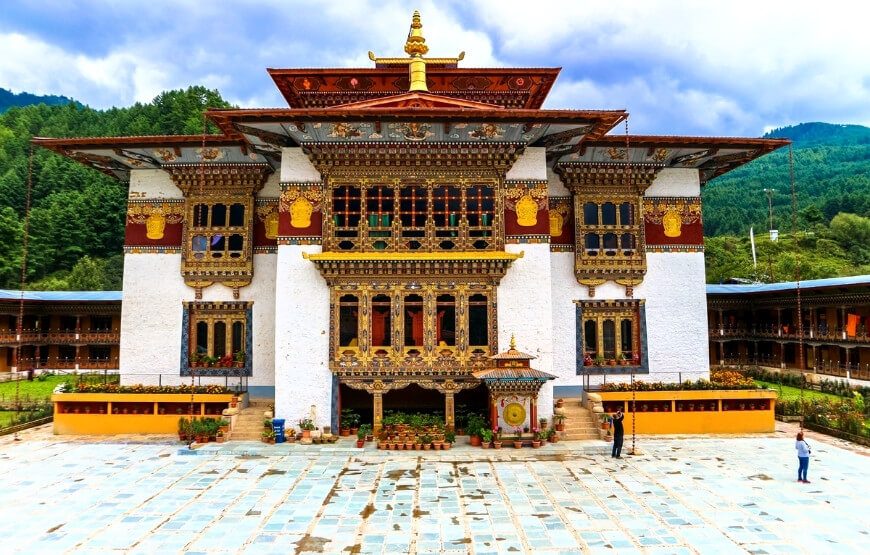
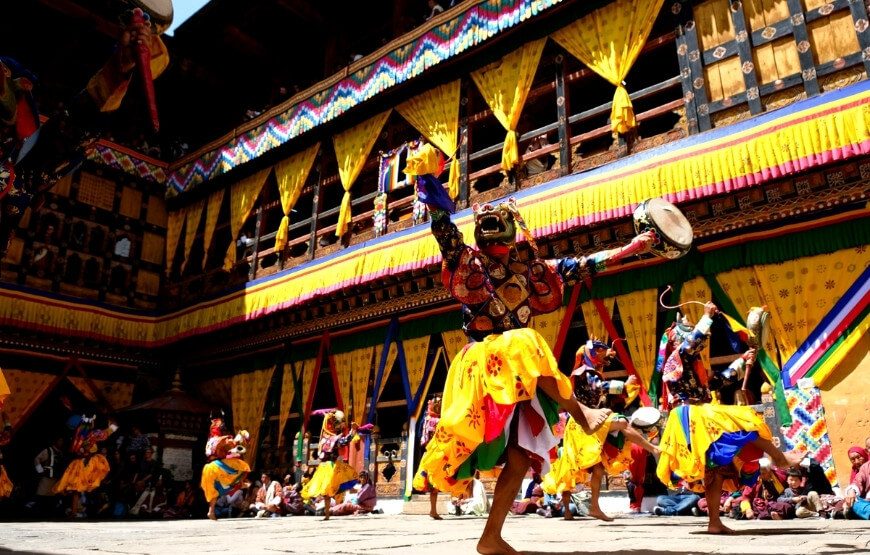
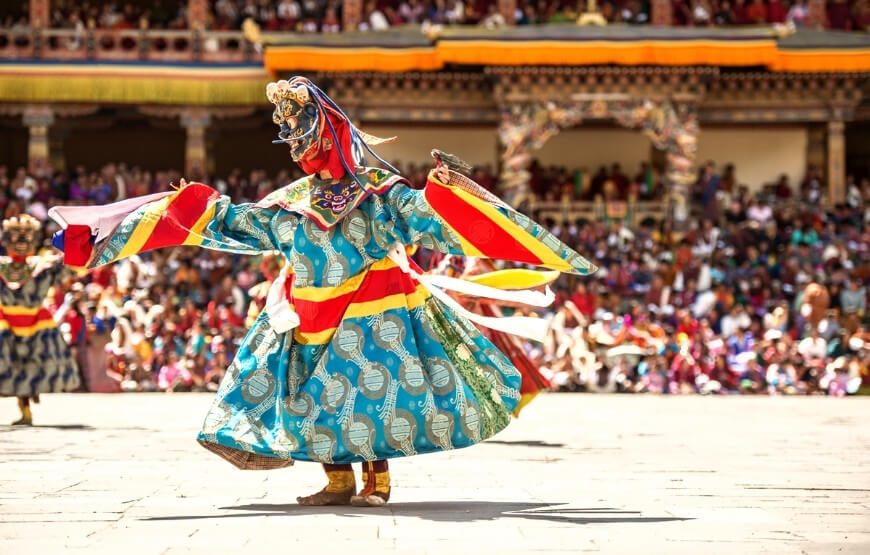
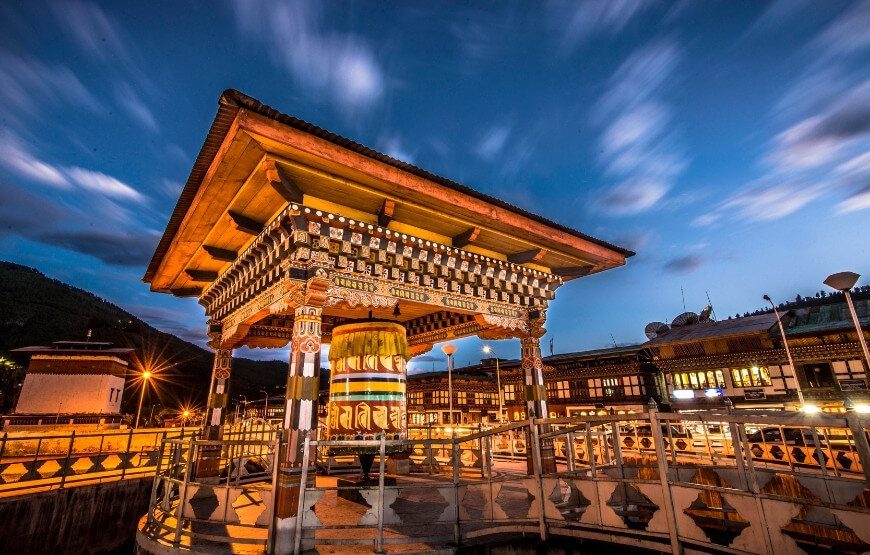
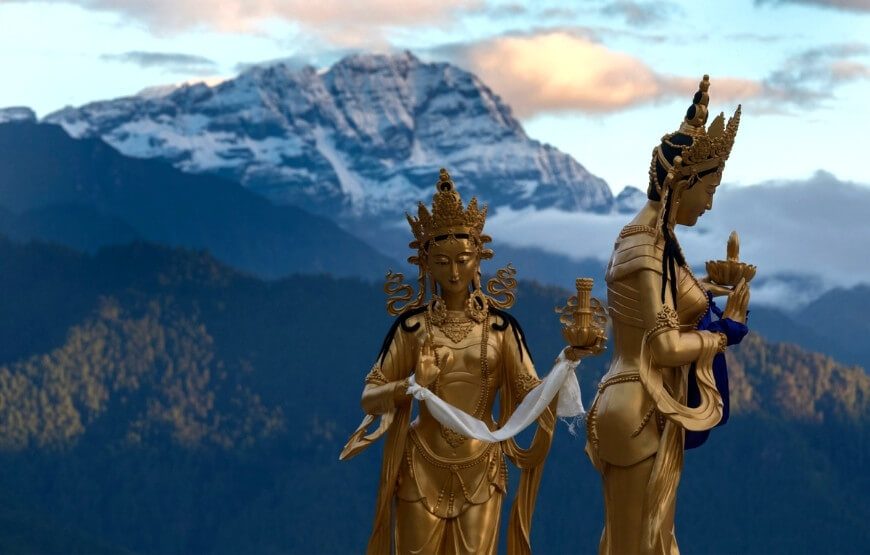
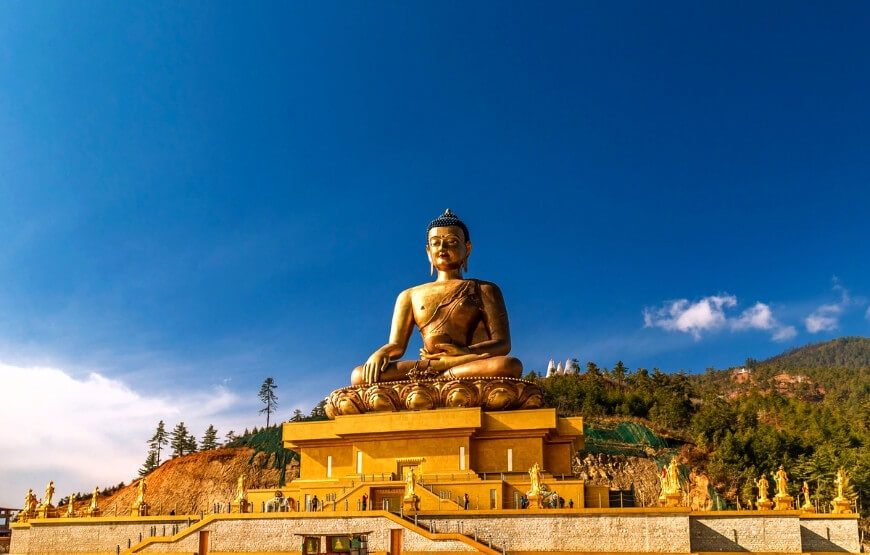
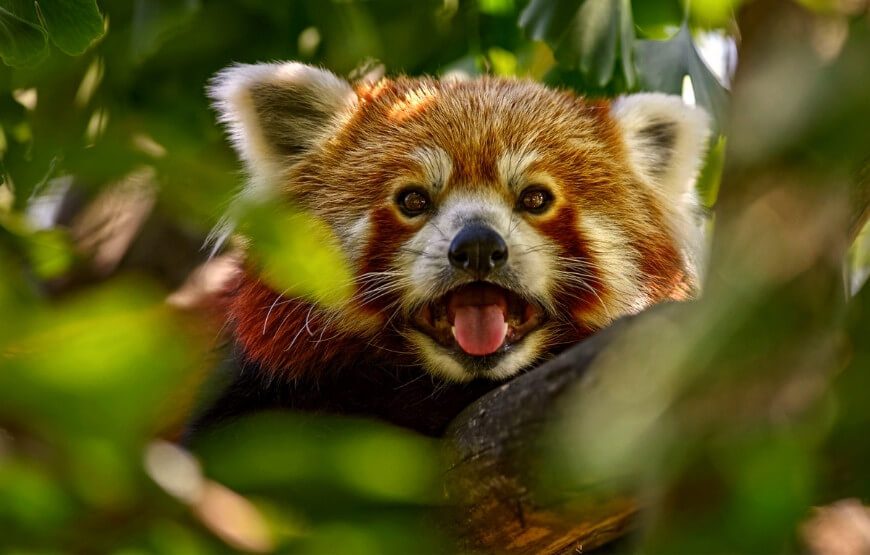
Day 1
Arrive Paro from New Delhi / Kolkata / Guwahati / Mumbai / Bagodgra & transfer to Thimphu 65 km 1hrs drive
The most spectacular mountain flights you will ever experience in a life time. Flying in from the heat of the plains of India one can witness from the left side of the aircrafts window a series of the world’s highest peaks. Your pilot will announce the names of the peaks if the weather is clear. You will descend into the high mountains and as the plane lowers you will not find any airstrip or any city but instead you will enjoy the view of the approaching valley of Paro, the alpine forests, little monasteries, temples and farm houses. Before the plane touches the runaway you will get a glimpse of the fertile valley of Paro, the Paro Dzong and Paro chu (river). Our representative will be at the airport to assist you, meet and greet and transfer to the capital city Thimphu and rest of the day at leisure. O/n at Thimphu.
Day 2
Thimphu – capital city
When in Thimphu you got to prepare for surprises where this unique capital has no traffic lights but adopted its own version of the British – Indian colonial times traffic policemen who can startle you and memorize others with his elaborate hand gestures, sometimes he may be signaling stop when it looks like go but don’t worry you can observe the flow and notice his smile as you stare at him. Sightseeing includes visit to the National Memorial Chorten a stupa dedicated to the third king of Bhutan and Buddha statue, Takin Zoo where you will find national animal of Bhutan and drive downhill stop at the junction to take a glimpse of Trashichho Dzong. Proceed towards National Library and Folk Heritage Museum. Afternoon take a short walk to Handicraft Bazaar to view the traditional arts. Afternoon at leisure or take a walk to the main city from Clock tower square for shopping.O/n at Thimphu.
Day 3
Thimphu - Punakha via Dochula pass 77 km 3 hrs drive
Morning drive to low lands of Punakha valley touching Dochula pass 10,000 ft and on the stop at Hongtsho village. Stop at the immigration check point to stamp in your permit. Next to the check point you will find small local stalls selling fresh juicy local apples available for sale in plastic bags you could try some. You will be driving through the first mountain pass in the western part of Bhutan. You will find the 108 DrukWangyal chortens on the top of the pass where the ridges are draped in colorful prayer flags greet you. You could take three rounds and offer prayers, take some best photo shots. If the weather is clear you will be able to see the highest peaks towards the north, GangarPunsum among others is the highest unclimbed peak (24,000 ft) in the world. Proceed down towards Punakha through Thinleygang village and upon reaching Lobesa turn left and enter Punakha valley. Check in the hotel. Afternoon visit majestic Punakha Dzong placed strategically at the junction of the Pho Chu and Mo Chu rivers, the Dzong was built in 1637 by ZhabdrungNgawang Namgyal to serve as the religious and administrative seat of the region. It was here that the dual system of government was introduced in the 17th century and in 1907, enthroned the first King GongsarUgyen Wangchuk. Evening at leisure. O/n at Punakha.
Day 4
Punakha - Bumthang 197km 6 hrs
Morning transfer to Bumthang via Wangdi& Trongsa we drive uphill towards Pela La Pass crossing the Black Mountains that divides western and central Bhutan. The roads uphill is pretty curving with sharp bends but you need not worry as our drivers are well experienced and on the way you will find rhododendron, magnolias and yaks grazing and on clear days you will find the Mt. Jumolhari standing still towards the west, at an elevation of 23,685feet. Before arriving to Trongsa you will pass by Nikkarchu Bridge and here you will find white washed stone chorten built in Nepalese style in the 18th century which lies below the road. This temple was founded by a lama called Shida who subdued a demon that was a trouble to the valley. Here you will experience something interesting as you will be approaching Trongsa where from the road you will be able to view the massive Trongsa Dzong also known as "the never reaching Trongsa Dzong. This place used to be the old gateway between the east and west. If you have time you could visit the Trongsa Dzong and Ta Dzong (Ta means watch tower in Dzongkha) was built in 1652 and now it is a museum which displays Buddhist art and the history of our Monarchy. O/n at Bumthang.
Day 5
Bumthang sightseeing
Bumthang valley is very open and spacious which is different from other valleys in Bhutan, its altitude ranges from 2,600 meters (8530ft) to 4000 meters (13,125 ft).Bumthang is known as heaven for hikers and trekkers and you will come across many beautiful monasteries, also important Buddhist monasteries and pilgrimage sites. This valley is full of surprises and fascinating as almost every valley or hill has a background of interesting myths and legends about kings, Buddhist masters and serpents. This place is important in terms of religious relics left by the famous Guru Rinpoche and his reincarnation.
Morning visit Jakar Dzong founded by a white bird built on a ridge overlooks the valley. “Ja” means bird and “kar” means white.
Jampey Lhakhang is one of the 108 temples built by the Tibetan King SongtsenGampo on the same day as Paro Kichu Lhakhang. The temple hosts Guru Joyo Jampa the future Buddha as its main statue. One of the most scared festivals Jampey Lhakhang Drup takes place here every year. Tamshing Lhakhang are the oldest temples dating to the 7th century in Bhutan.
The Kurjey Lhakhang where the kings of Bhutan are taken for their cremation rites. Kurjey translates into “Kur” means body and “Jey “means Lhakhang. The big cypress tree is believed to be the walking stick of Guru Rimpoche. The great Guru also created a holy water hole beside the temple which people frequent either for religious or medical purposes. Wangdicholing Palace – built during the times of the first king’s father, Jigme Namgyel was used by the first King Ugyen Wangchuk as his main residence. Visit the town or take a walk till the bridge though the township was burnt down by fire in recent times. If you are a cheese and honey lover you could try the Bumthang cheese which is available and honey produced in Bumthang. Evening at leisure. O/n at Bumthang.
Day 6
Bumthang – Wangdi 182 km 6 hrs
After breakfast drive to Wangdi valley through the same road and on the way stop and visit the famous BumthangMatha local shops near by the villages where you can find rich woolen plaid textiles dyed with natural colours and the famous Yatas, it is a thin cloth with bright pattern often made into warm jackets and scarves. Proceed further towards Trongsa and drive to Wangdi. On the way you may find interesting areas where you can stop and take some photo shots. Reach Wangdi and rest of the day at leisure. O/n at Wangdi.
Day 7
Wangdi – Paro 152 km 4 hrs drive
Morning drive to Paro via same road and stop at Lamperi. Visit the Royal Botanical Park for 30 minutes. If you are lucky you could see red pandas, different species of birds, you can take some photo shot close to the natural lake. You could watch a short documentary about the park. Proceed to Paro via Semtokha and check in the hotel. Afternoon visit ruins of Drukgyel Dzong and drive till the base of Tigers Nest. Evening at leisure. O/n at Paro.
Day 8
Paro sightseeing
Morning visit Paro Dzong, the National Museum housed in a round fortress called as the Ta Dzong considered to be one of the best natural history museums in Asia where it has a fine collection of natural and historic artifacts. Paro Penlop Heritage Farm house, Kyichu Lhakhang the monastery dates back to 7th century and is one of the oldest and most sacred. Afternoon at leisure and evening visit the town for shopping. O/n at Paro.
Day 9
Departure
Morning transfer to depart for your next destination.